Wednesday, December 2, 2009
Grace Muthumbi -- Beauty and Grace
Q –In your story, Beauty and Grace, you say that you found your calling by accident when introduced to International Medical Corps. Please tell us more about this. What work had you done prior?
Grace: I was an Assistant District public health nurse within the ministry of health before joining the NGO world at Kakuma refugee camp as community outreach manager. These are somewhat managerial positions and sometimes one is detached from the reality and can hardly fathom the amount of human suffering that exits beyond your door.
Q. - What is it about the work at IMC that changed your life?
Grace :I can say that destiny brought me to IMC. My position at IMC really involves direct interaction with the people who are hurting, with great psychosocial and physical needs, majority of which simple interventions can make a big difference. I felt their pain, sometimes overwhelmed by their needs but strengthened by their resilience and the human determination to survive against very difficult circumstances. I have also learnt to appreciate everything that God has given me and has made me to be
Q – Your personal story is one of strength over-coming adversity. You, like the Phoenix, literally ‘rose from the ashes’ and soared. How do you think your own life challenges have helped you in your work?
Grace: Having been able to overcome self stigmatization and self pity and being able to draw from inner strength, to pull myself together and be what today makes am me understand that anyone can make it no matter the disaster. This is what drives me. I have learned that in the people living with HIV/AIDs stigma and discrimination, self pity and hopelessness contributes a lot to their disease progression poor quality of life. For some all they need is someone to throw a lifeline to them sometimes word of encouragement to develop self confidence and they are able to move on normally. Ignoring someone in need is a luxury that I cannot afford. Some of those especially women that have been able to pull through have become pillars of hope to others who are struggling to overcome the HIV related stigma. I would like to see the community create an enabling environment that supports the PLWHAs to lead more productive lives despite their being HIV infected.
Q –Have you had other writing publishing experience other than your story, Beauty and Grace?
Grace: Yes, but the Beauty and Grace is the big one. The first publication I did was published in a local magazine “African woman and child” which highlighted my contribution towards improving the reproductive health of women in Liberia slums –Nairobi. In 2008 April I did a story to “Global health link April 2008 edition” which was a first person account about responding to health needs during a crisis. This was mypersonal account of my efforts to track and address the health and social needs of the TB/HIV infected clients who were internally displaced during the post election violence that hit the country after the disputed presidential elections in 2007.
Q. _ Was your story difficult to write, or did you welcome the opportunity to tell – or both?
Grace: The story was not really difficult to write only that it was difficult to filter what to write. I have gained a lot of experience over the years in the humanitarian world particularly since I joined Internationa Medical Corps (IMC).
Q – You have dedicated your life to fighting HIV-AIDS. In your story, Beauty and Grace, you compare this to being “on the front lines of war. Tell me more about that.
Grace: This is really a frontline. The sub Saharan Africa contributes to 67% of the total global 32 million people living with HIV/AIDs. ( ) Its home to 22 million people living with HIV/AIDs. In Kenya with a HIV prevalence of 6.9% is home to 1.4 million HIV infected people ( KAIS 2007) with pediatric HIV infections being 10% .Since November 1999 when the HIV/AIDs pandemic was declared a national disaster in November 1999 and though progress has been made in efforts to mitigate its effects as the it stabilizes it leaves in its wake devastation, low life expectancy, overstretched health systems, diver stated economy due to loss of live hood and death of economically able individuals, huge number of orphans to be taken care by grandparents or older siblings. Surely one single intervention can never address the gaps created by the pandemic. It requires concerted efforts from the health, social, political, and spiritual fronts as individuals, as a nation and internationally. In war as well as in the fight against HIV/AIDs, time is of essence and every moment counts. For the children there is a generation at risk that requires whatever it takes to save. Children who are the future infected or not needs to be protected. A baby born in Africa , infected or not is likely to die before their second birthday, if the mother dies. We need to preserve the lives of the women as much as possible in order to rescue the children. We need to prolong and improve the quality of their HIV infected women as long as possible in order to prevent children being orphaned early in life.
Q – You have a dream of creating a foundation for women. Speak to us about what this foundation would do for the women of Kenya.
Grace: Oh ! This makes me smile. The foundation has started in a small way to live my dream .Yes men and women are affected by the epidemic but in Africa, “the virus bears the face of a woman.”In Kenya more women9 % are infected compared to 7% in men. Besides the biological make up of a woman, the African woman has no power to negotiate for her reproductive health rights which includes the use of condoms. Poverty, low education, lack of economic empowerment compounds the already complicated situation for the woman. The HIV infected woman has to take care of the sick husband and children even though herself she needs to be taken care of. My foundation will seek to empower the vulnerable women mainly in the rural areas economically through seed money to generate income, provide them reproductive health education as a tool to enable her make informed reproductive health choices. We seek to support the good golden forgotten grand mothers who are struggling to raise their children’s children we hope to help them build a solid economic base through savings and small grants. In Kenya the merry go round is very common among women groups but without money to contribute the poor women are limited and remain so. We hope to change this. Meeting medical needs can be very threatening for the women and we hope to tap into the already existing national hospital insurance fund to help them pay for their medical expenses.
Q - What does the future hold for Grace Muthumbi?
Grace: The future is very bright for Grace Muthumbi. Am planning to do a masters degree in leadership which will give me better negotiation front as I advocate for needs of the marginalized at home and beyond. By establishing the foundation I hope to establish a national and international network of friends who wants to make a difference in the lives of bright HIV orphaned girls with education, hopefully foster families who would support their education in the hope that they will become ambassadors of hope to their generation and give back to those that need help. I definitely want to leave a legacy behind for having made a difference in somebody’s life. I hope to make a significant contribution to the well being of humanity to deserve a Nobel Prize some day. How about that?
Grace: I was an Assistant District public health nurse within the ministry of health before joining the NGO world at Kakuma refugee camp as community outreach manager. These are somewhat managerial positions and sometimes one is detached from the reality and can hardly fathom the amount of human suffering that exits beyond your door.
Q. - What is it about the work at IMC that changed your life?
Grace :I can say that destiny brought me to IMC. My position at IMC really involves direct interaction with the people who are hurting, with great psychosocial and physical needs, majority of which simple interventions can make a big difference. I felt their pain, sometimes overwhelmed by their needs but strengthened by their resilience and the human determination to survive against very difficult circumstances. I have also learnt to appreciate everything that God has given me and has made me to be
Q – Your personal story is one of strength over-coming adversity. You, like the Phoenix, literally ‘rose from the ashes’ and soared. How do you think your own life challenges have helped you in your work?
Grace: Having been able to overcome self stigmatization and self pity and being able to draw from inner strength, to pull myself together and be what today makes am me understand that anyone can make it no matter the disaster. This is what drives me. I have learned that in the people living with HIV/AIDs stigma and discrimination, self pity and hopelessness contributes a lot to their disease progression poor quality of life. For some all they need is someone to throw a lifeline to them sometimes word of encouragement to develop self confidence and they are able to move on normally. Ignoring someone in need is a luxury that I cannot afford. Some of those especially women that have been able to pull through have become pillars of hope to others who are struggling to overcome the HIV related stigma. I would like to see the community create an enabling environment that supports the PLWHAs to lead more productive lives despite their being HIV infected.
Q –Have you had other writing publishing experience other than your story, Beauty and Grace?
Grace: Yes, but the Beauty and Grace is the big one. The first publication I did was published in a local magazine “African woman and child” which highlighted my contribution towards improving the reproductive health of women in Liberia slums –Nairobi. In 2008 April I did a story to “Global health link April 2008 edition” which was a first person account about responding to health needs during a crisis. This was mypersonal account of my efforts to track and address the health and social needs of the TB/HIV infected clients who were internally displaced during the post election violence that hit the country after the disputed presidential elections in 2007.
Q. _ Was your story difficult to write, or did you welcome the opportunity to tell – or both?
Grace: The story was not really difficult to write only that it was difficult to filter what to write. I have gained a lot of experience over the years in the humanitarian world particularly since I joined Internationa Medical Corps (IMC).
Q – You have dedicated your life to fighting HIV-AIDS. In your story, Beauty and Grace, you compare this to being “on the front lines of war. Tell me more about that.
Grace: This is really a frontline. The sub Saharan Africa contributes to 67% of the total global 32 million people living with HIV/AIDs. ( ) Its home to 22 million people living with HIV/AIDs. In Kenya with a HIV prevalence of 6.9% is home to 1.4 million HIV infected people ( KAIS 2007) with pediatric HIV infections being 10% .Since November 1999 when the HIV/AIDs pandemic was declared a national disaster in November 1999 and though progress has been made in efforts to mitigate its effects as the it stabilizes it leaves in its wake devastation, low life expectancy, overstretched health systems, diver stated economy due to loss of live hood and death of economically able individuals, huge number of orphans to be taken care by grandparents or older siblings. Surely one single intervention can never address the gaps created by the pandemic. It requires concerted efforts from the health, social, political, and spiritual fronts as individuals, as a nation and internationally. In war as well as in the fight against HIV/AIDs, time is of essence and every moment counts. For the children there is a generation at risk that requires whatever it takes to save. Children who are the future infected or not needs to be protected. A baby born in Africa , infected or not is likely to die before their second birthday, if the mother dies. We need to preserve the lives of the women as much as possible in order to rescue the children. We need to prolong and improve the quality of their HIV infected women as long as possible in order to prevent children being orphaned early in life.
Q – You have a dream of creating a foundation for women. Speak to us about what this foundation would do for the women of Kenya.
Grace: Oh ! This makes me smile. The foundation has started in a small way to live my dream .Yes men and women are affected by the epidemic but in Africa, “the virus bears the face of a woman.”In Kenya more women9 % are infected compared to 7% in men. Besides the biological make up of a woman, the African woman has no power to negotiate for her reproductive health rights which includes the use of condoms. Poverty, low education, lack of economic empowerment compounds the already complicated situation for the woman. The HIV infected woman has to take care of the sick husband and children even though herself she needs to be taken care of. My foundation will seek to empower the vulnerable women mainly in the rural areas economically through seed money to generate income, provide them reproductive health education as a tool to enable her make informed reproductive health choices. We seek to support the good golden forgotten grand mothers who are struggling to raise their children’s children we hope to help them build a solid economic base through savings and small grants. In Kenya the merry go round is very common among women groups but without money to contribute the poor women are limited and remain so. We hope to change this. Meeting medical needs can be very threatening for the women and we hope to tap into the already existing national hospital insurance fund to help them pay for their medical expenses.
Q - What does the future hold for Grace Muthumbi?
Grace: The future is very bright for Grace Muthumbi. Am planning to do a masters degree in leadership which will give me better negotiation front as I advocate for needs of the marginalized at home and beyond. By establishing the foundation I hope to establish a national and international network of friends who wants to make a difference in the lives of bright HIV orphaned girls with education, hopefully foster families who would support their education in the hope that they will become ambassadors of hope to their generation and give back to those that need help. I definitely want to leave a legacy behind for having made a difference in somebody’s life. I hope to make a significant contribution to the well being of humanity to deserve a Nobel Prize some day. How about that?
Subscribe to:
Post Comments (Atom)
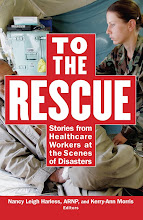
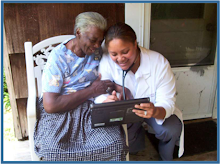









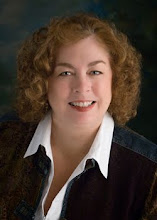

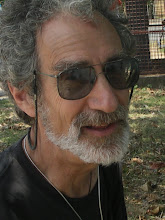
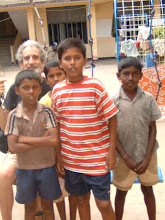


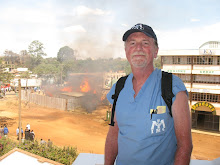











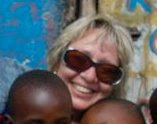


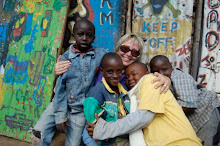






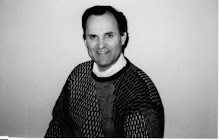

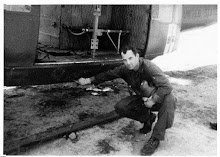




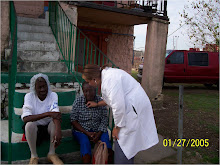
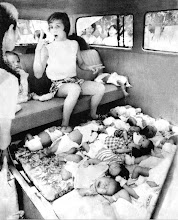





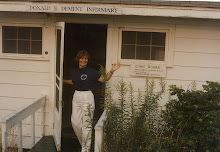




No comments:
Post a Comment